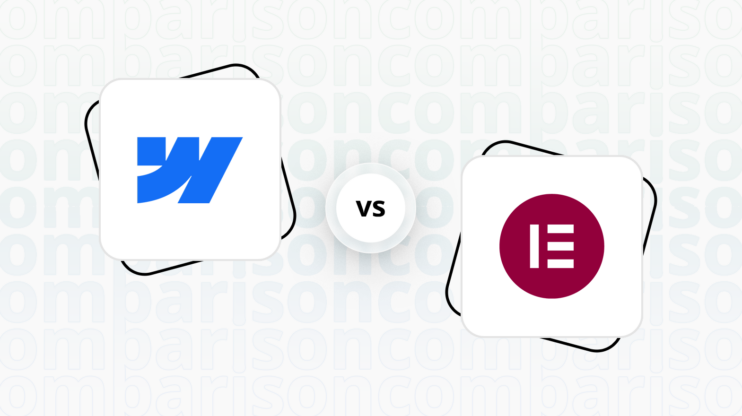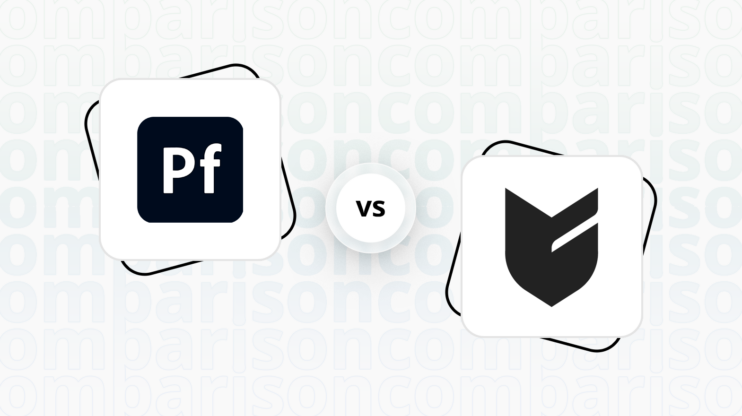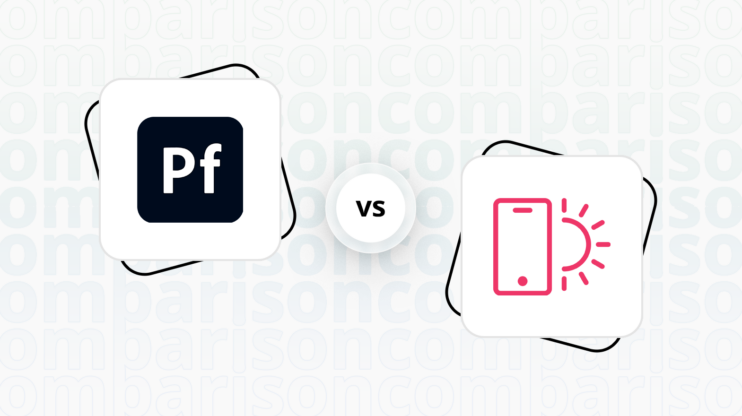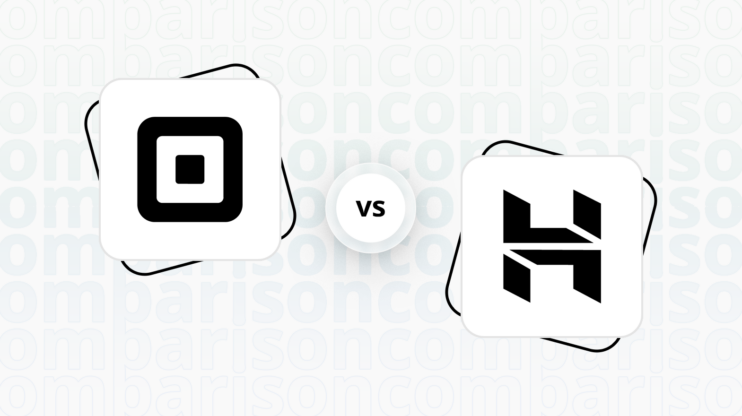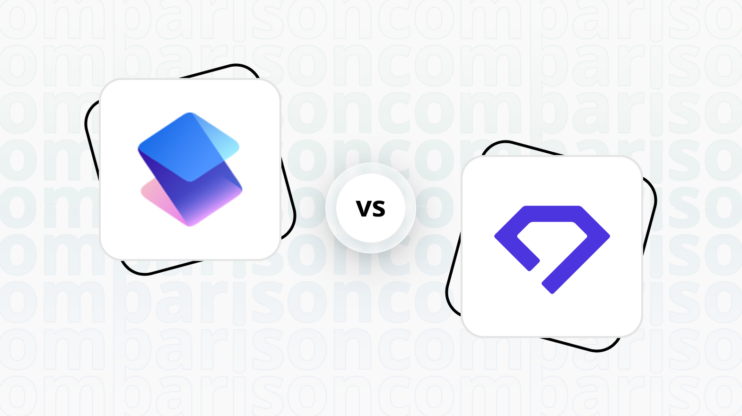BigCommerce vs SubHub: Final verdict
BigCommerce and SubHub cater to different needs, with BigCommerce excelling in ecommerce capabilities and SubHub focusing on membership site management.
-
BigCommerce (Overall Grade: 7.9/10)
is a comprehensive ecommerce platform ideal for businesses looking to scale their online presence. It offers a wide range of customizable templates, advanced SEO tools, and multi-channel selling capabilities. With robust built-in features, extensive support resources, and a user-friendly interface, BigCommerce is a strong choice for merchants aiming for growth and scalability. -
SubHub (Overall Grade: 5.6/10)
is designed specifically for creating and managing membership sites. It provides tools tailored for content creators and entrepreneurs to build a community and monetize their content. While it excels in ease of use and membership management, it lacks the extensive ecommerce features and flexibility offered by BigCommerce, making it more suitable for niche markets focused on content monetization.

|

|
|
|---|---|---|
|
Design functionalities & templates |
7.8 |
6.8 |
|
Ease of use |
7.3 |
7.7 |
|
Ecommerce |
9.0 |
5.9 |
|
Website Editors |
7.9 |
6.9 |
|
Product testing options |
7.3 |
7.0 |
|
Price |
7.4 |
6.8 |
|
Hosting quality |
7.8 |
5.5 |
|
Website speed optimization |
7.6 |
5.6 |
|
Plugins and integrations |
7.7 |
5.7 |
|
Marketing features |
7.9 |
5.7 |
|
Customer support |
8.7 |
6.3 |
|
Security |
8.9 |
4.0 |
|
AI capabilities |
7.3 |
0 |
|
User Management |
8.9 |
5.2 |
Which one is the best for ecommerce: BigCommerce or SubHub?
 9.0
9.0
 5.9
5.9
Verdict
: BigCommerce is a powerhouse for traditional ecommerce, while SubHub excels in membership-based business models.
-
BigCommerce
: BigCommerce is a comprehensive ecommerce platform ideal for businesses aiming to scale. It offers a robust set of built-in features, including advanced SEO tools, various payment gateway integrations, and multi-channel selling capabilities. When comparing BigCommerce vs SubHub, BigCommerce stands out with its extensive ecommerce functionalities, making it a top choice for merchants looking to expand their online presence. -
SubHub
: SubHub is tailored for content creators and entrepreneurs focusing on membership sites. It simplifies setting up subscription models and managing member access, making it perfect for those looking to monetize their content. However, it lacks the depth and scalability of BigCommerce for traditional ecommerce needs.
Which one is the best for informational and business websites?
 7.5
7.5
 7.2
7.2
Verdict
: When it comes to creating informational business websites, BigCommerce and SubHub each have their unique strengths. BigCommerce, with a score of 7.5, offers a more comprehensive set of features and design options, making it a versatile choice for businesses of all sizes. SubHub, scoring 7.2, is tailored for membership sites, providing tools specifically designed for content creators and entrepreneurs looking to monetize their content.
-
BigCommerce
: BigCommerce is a robust platform that excels in providing a wide range of customizable templates and design options. It is particularly strong in SEO tools, payment gateway integrations, and multi-channel selling capabilities. While it is primarily an ecommerce platform, its extensive support resources and user-friendly interface make it a viable option for informational business websites as well. However, its comprehensive feature set may be overwhelming for beginners or small businesses. -
SubHub
: SubHub is designed specifically for creating and managing membership sites, making it an excellent choice for content creators and entrepreneurs. It simplifies the process of setting up subscription models and managing member access, providing a user-friendly platform that emphasizes ease of use and efficiency. While it may not offer the same level of design flexibility or advanced features as BigCommerce, SubHub’s focus on membership-based businesses makes it a strong contender for those looking to build a community and monetize their content.
BigCommerce vs SubHub: Detailed comparison
Design functionalities & templates
Design FunctionalitiesRepresents how well each platform allows for creative design and customization of websites.Score Components:
- Template Variety (30%): Range and quality of design templates.
- Customization (30%): Flexibility and options for design alterations.
- User Interface (20%): Ease and intuitiveness of the design process.
- Responsiveness (10%): Adaptability to different devices and screen sizes.
- Innovation (10%): Unique design features and tools.
 7.8
7.8
 6.8
6.8
🏆
Winner: BigCommerce.
BigCommerce offers a wider range of design functionalities and templates, making it a more flexible choice for businesses of all sizes.
BigCommerce offers a variety of design templates for creating ecommerce websites, with a total of 240 themes available. Most of these themes come with up to four styling options, providing users with flexibility in design choices to match their brand’s aesthetic.
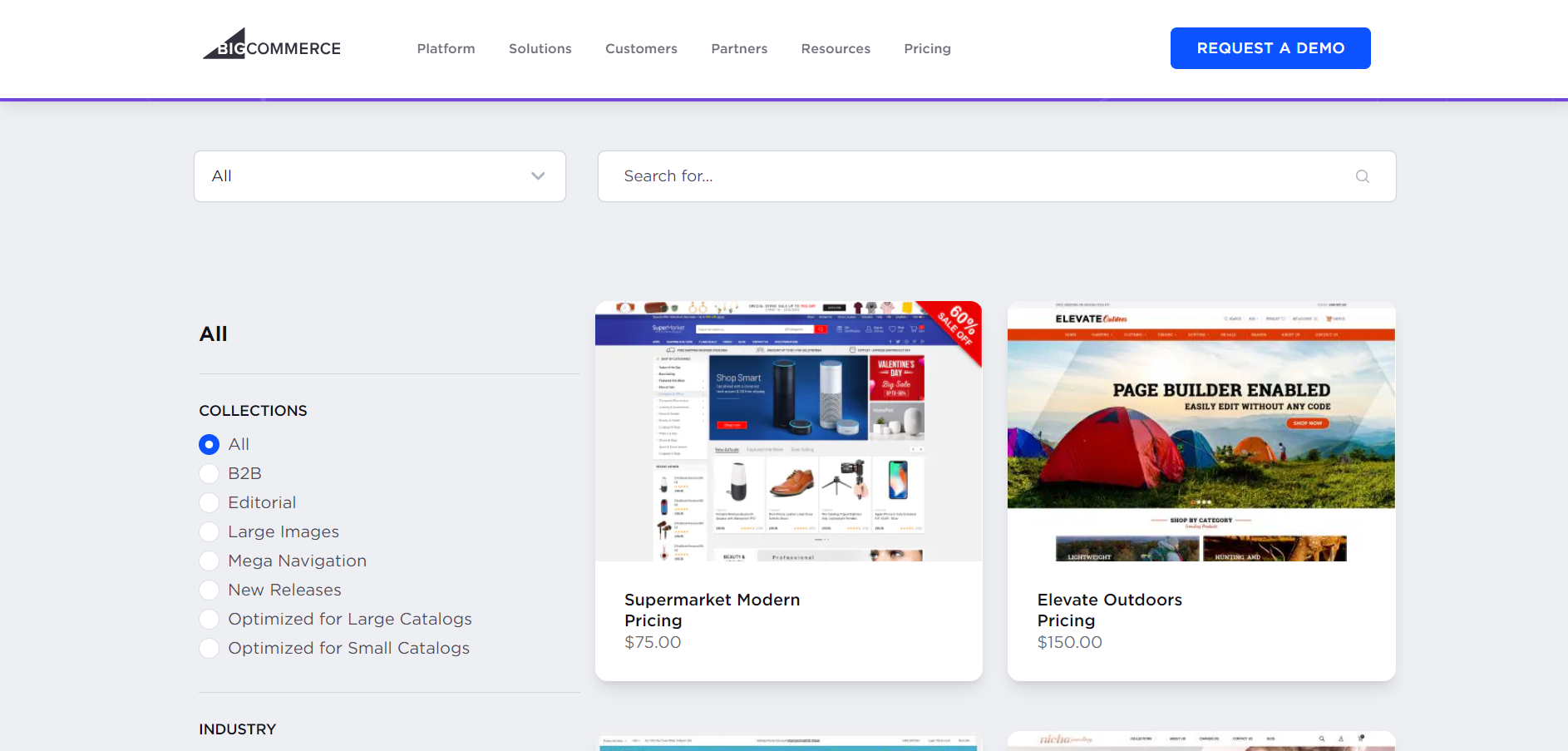
On the other hand, SubHub website builder offers a variety of customizable membership website templates designed to cater to different needs and themes. There are 14 specifically themed templates available, each designed to help users jump-start the design of their membership website homepages.
Get a head start on website creation with AI
Create a custom website tailored to your business needs 10X faster with 10Web AI Website Builder!
Ease of use
Ease of useReflects the platform’s overall user-friendliness.Score
Components:
- Learning curve (40%): Quickness and ease of getting started.
- Interface design (30%): Simplicity and intuitiveness of layout.
- User guidance (20%): Quality of tutorials and support.
- Flexibility (10%): Adaptability to various user skills.
 7.3
7.3
 7.7
7.7
🏆 Winner: SubHub
. With a score of 7.7, SubHub edges out BigCommerce (7.3) in terms of ease of use. SubHub’s platform is designed with simplicity and efficiency in mind, making it ideal for content creators and entrepreneurs looking to build a community and monetize their content. BigCommerce, while offering a comprehensive set of built-in features and extensive support resources, may be overwhelming for beginners or small businesses on a tight budget.
Learning Resources
🏆 Winner: BigCommerce
. Both platforms offer solid learning resources, but BigCommerce goes a step further with its wide array of detailed tutorials, articles, guides, webinars, podcasts, and reports, as well as specific training through BigCommerce University. These resources cover a breadth of topics, aiming to enhance both operational skills and strategic knowledge for merchants.
For ecommerce
EcommerceMeasures the platform’s effectiveness in supporting online business activities.Score Components:
- Ecommerce themes and templates (20%): Variety and design of templates.
- Product management (25%): Ease of managing and organizing products.
- Payment options (25%): Variety and convenience of payment methods.
- Ecommerce features (20%): Features for managing an ecommerce store.
- Integration (10%): Compatibility with external e-commerce tools and services.
 9.0
9.0
 5.9
5.9
BigCommerce and SubHub cater to different ecommerce needs. BigCommerce is a comprehensive ecommerce platform with a robust set of built-in features, making it a popular choice for merchants looking to scale their online presence. On the other hand, SubHub is designed specifically for creating and managing membership sites, making it an ideal choice for content creators and entrepreneurs who aim to build a community and monetize their content.

|

|
|
|---|---|---|
|
Ecommerce themes and templates |
8.0 |
3.0 |
|
Product page customization |
8.3 |
6.5 |
|
Payment processing and commissions |
9.2 |
7.0 |
|
POS capabilities |
8.5 |
0.0 |
|
Payment gateways |
9.0 |
6.0 |
|
Product numbers |
9.5 |
5.0 |
|
Additional ecommerce features |
8.4 |
4.5 |
BigCommerce ecommerce features:
- Unlimited Products
- Streamlined Single-Page Checkout
- Order Management
- Abandoned Cart Recovery
- Marketing and Sales Tools
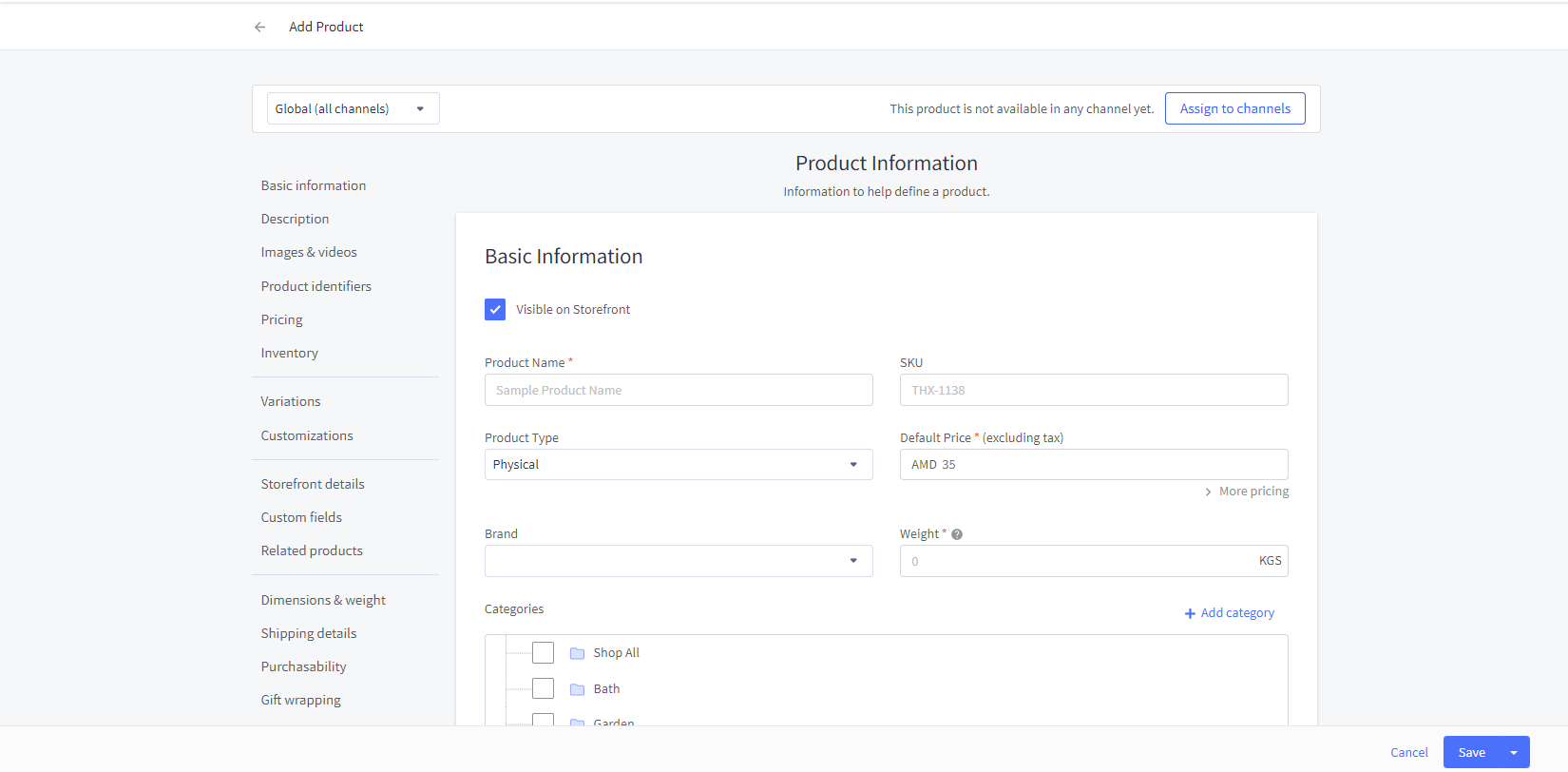
SubHub ecommerce features:
- Paypal and Stripe integration
- Physical and Digital product listings
- Pay-per view products
Ecommerce themes & templates
BigCommerce provides a wide variety of eCommerce templates designed to enhance online shopping experiences and cater to different industries. These templates feature advanced functionalities like quick view, product suggestions, and complex search filters but may require performance optimization for maintaining speed. The selection ranges from free to premium options, ensuring businesses can find a suitable design that aligns with their brand and product offerings. On the other hand, SubHub does not have ecommerce specific templates.
Product page customization
In BigCommerce, you can extensively customize product pages to enhance customer experience and improve sales. This includes the ability to create detailed product variants, customize options like custom fields, and upload multiple images or videos for each product. The SubHub website builder offers a range of product page customization options, allowing for the addition of physical items, digital downloads, and pay-per-view content. Features include the ability to manage product variants, upload images, and set visibility preferences. Users can also implement SEO strategies through meta tags and manage tax settings. Additional functionalities include member-specific discounts, image carousels, and individualized shipping costs.
Payment processing
BigCommerce supports over 65 pre-integrated online payment solutions, serving customers across 230 countries with more than 140 currencies, without charging additional transaction fees for using third-party payment gateways. This approach provides merchants with the flexibility to choose the best payment solution for their business needs, including the option for custom integration to cater to specific regional payment preferences. Furthermore, BigCommerce’s integration with various POS systems allows for seamless online and in-store sales management, offering a comprehensive solution for businesses looking to maximize their sales channels. On the other hand, SubHub website builder supports two main payment gateways: Stripe and PayPal. These integrations allow for secure payment processing for subscriptions and store items using debit or credit cards. The platform itself does not charge commissions on transactions.
Website Editors
Website EditorsEvaluates the platforms’ website building and editing capabilities.Score Components:
- Customization tools (40%): Range and power of editing features.
- Editor usability (30%): User experience within the editor.
- Design flexibility (20%): Freedom in layout and design changes.
- Update and maintenance ease (10%): Simplicity of updating and maintaining the site.
 7.9
7.9
 6.9
6.9
🏆
Winner: BigCommerce
. BigCommerce, with a score of 7.9, offers an extensive set of tools designed for creating professional and engaging online stores without requiring coding knowledge. It provides a user-friendly drag-and-drop interface, robust eCommerce capabilities including product management and secure payment processing, and customizable templates to match brand aesthetics. The platform also features powerful SEO and marketing tools, app integrations for extended functionality, and comprehensive analytics to track website performance.
SubHub’s editor, scoring 6.9, is tailored for creating and managing membership sites, catering to content creators and entrepreneurs aiming to monetize their offerings. Its features encompass customizable templates, diverse content publishing options, and flexible subscription plans with seamless integration for recurring revenue through payment processors. Additionally, SubHub supports online course creation, provides marketing tools like landing page builders, and offers detailed analytics for monitoring website metrics.
Mobile editor/app
 7.5
7.5
 4.0
4.0
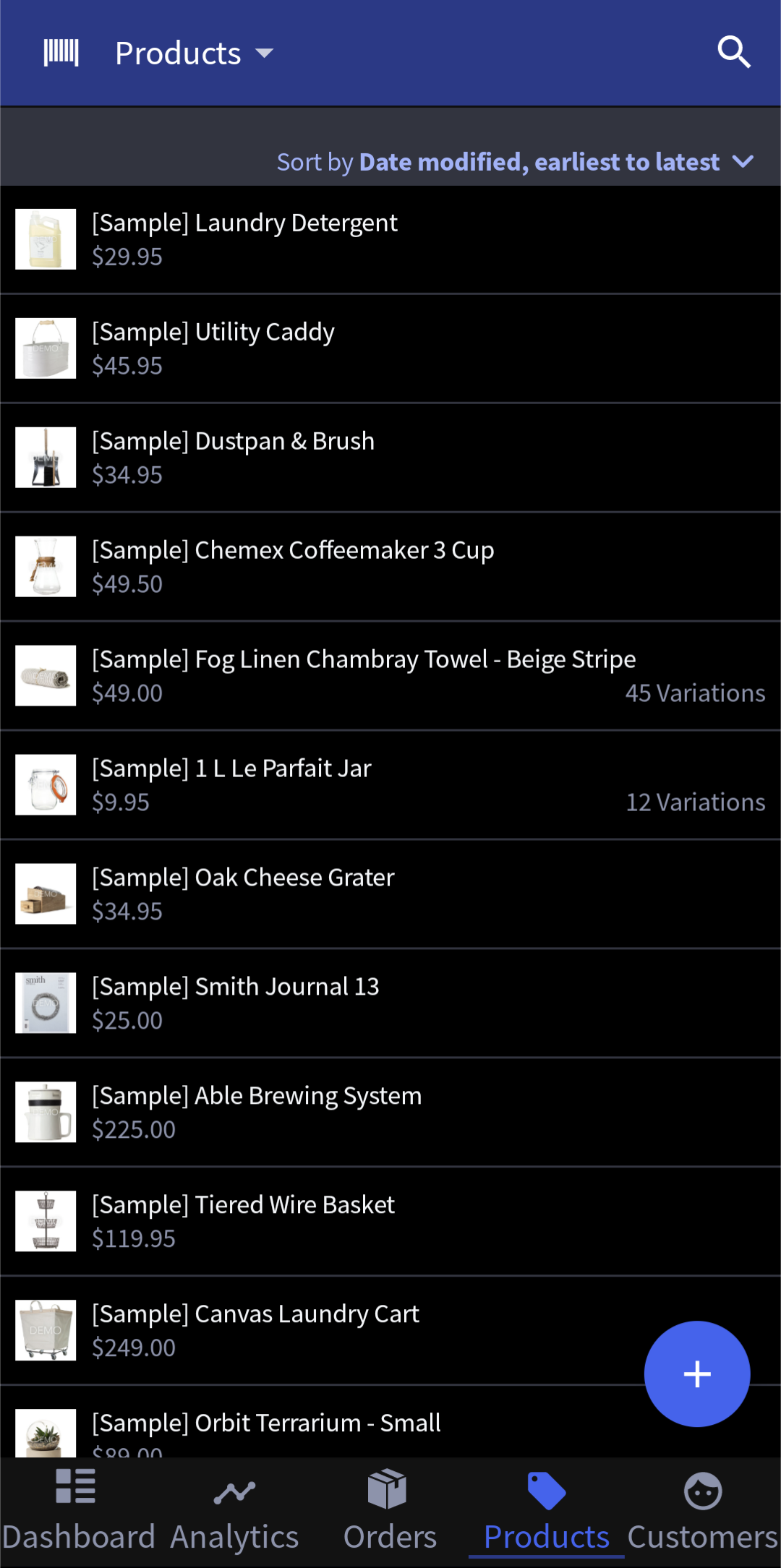
🏆
Winner: BigCommerce
. Both BigCommerce and SubHub offer mobile apps, but their capabilities differ significantly. BigCommerce’s mobile app allows users to access the dashboard, analytics, orders, and even add or edit products. However, it doesn’t support website editing.
On the other hand, SubHub doesn’t have a dedicated mobile editor app. Users can manage some content on their website using the mobile browser version, but it’s not possible to change the layout and design of the website on mobile.
In summary, BigCommerce scores higher in the mobile editor category due to its more comprehensive mobile app, despite the lack of website editing capabilities.
Product testing options
Product Testing OptionsAssesses the options for trying out platform features before commitment.Score Components:
- Trial quality (40%): Extent and usefulness of the trial or free version.
- Feature accessibility (30%): How many features are available to test.
- Trial duration (20%): Length of the trial period.
- Ease of transition (10%): Smoothness of moving from trial to paid plans.
 7.3
7.3
 7.0
7.0
Overall Result
:
BigCommerce wins
. BigCommerce scores 7.3, slightly ahead of SubHub’s 7.0. Both platforms offer a 14-day free trial, but BigCommerce pulls ahead with its option to test premium features during the trial period. SubHub, while offering a 7-day money-back guarantee, falls slightly short in this comparison.

|

|
|
|---|---|---|
|
Free Plan |
No (14-day free trial) | No (14-day free trial) |
|
Trial Duration |
14 days | 14 days |
|
Testing Premium Features |
During the free trial |
During the free trial |
|
Money Back Guarantee |
No |
7-day money back guarantee |
Price
PriceLooks at the cost-effectiveness and value for money of each platform.Score Components:
- Plan value (40%): What each pricing tier offers.
- Transparency and clarity (30%): Clearness of pricing structures.
- Flexibility of plans (20%): Range of options to suit different budgets.
- Hidden costs (10%): Additional expenses not included in the plan.
 7.4
7.4
 6.8
6.8
BigCommerce offers a more comprehensive range of pricing plans, including a customizable enterprise plan, while SubHub offers simpler pricing options with no enterprise plan.

|

|
|
|---|---|---|
|
$30-$50 |
Standard ($39.00/month): Unlimited products, file storage, and bandwidth, suitable for small businesses. Limited to $50k in online sales per year and up to 4 inventory locations. Value for price: 7.0 |
Starter ($47/month): Up to 500 members, 5 GB storage, secure payment processing, course builder, 5 landing pages, e-commerce. Value for price: 6.5 |
|
$90-$110 |
Plus ($105.00/month): Includes Standard features, plus customer segmentation and abandoned cart saver. Limited to $180k in online sales per year and up to 5 inventory locations. Value for price: 7.5 |
Pro ($97/month): Up to 2000 members, 50 GB storage, removes SubHub branding, 15 landing pages, along with Starter features. Value for price: 7.5 |
|
$140-$200 |
No offering at this amount. |
Premium ($147/month): Unlimited members, 200 GB storage, email white labelling, 30 landing pages, plus all Pro features. Value for price: 8.5 |
|
$300+ |
Pro ($399.00/month): All Plus features, plus Google customer reviews and advanced search filters. Limited to $400k in online sales per year, and up to 8 inventory locations. Additional $150/month for every $200k in online sales. Value for price: 8.0 |
No offering at this amount. |
location. As a result in rare cases the prices displayed here can differ from the ones you see on their
websites.
Hosting quality
Hosting
qualityExamines the reliability and performance of the hosting solutions.Score Components:
- Uptime (40%): Consistency and reliability of website availability.
- Speed (30%): Loading times and performance.
- Bandwidth and storage (20%): Sufficiency of resources provided.
- Data centers (10%): Quality and distribution of hosting infrastructure.
 7.8
7.8
 5.5
5.5
Winner: BigCommerce
. BigCommerce offers scalable cloud hosting with unlimited storage and bandwidth, and a 99.9% uptime guarantee. SubHub also offers hosting, but with storage limitations and without uptime statistics or guarantees. Both platforms do not disclose the locations of their data centers. BigCommerce’s superior uptime guarantee and unlimited storage and bandwidth give it the edge in this category.

|

|
|
|---|---|---|
|
Do they offer hosting? |
Yes, scalable cloud hosting with unlimited storage and bandwidth, but limited backup possibilities |
Yes, from 5GB to 200GB storage limitation depending on the plan and daily backups |
|
Type of hosting: |
Cloud Hosting |
Managed Cloud Hosting |
|
Uptime: |
99.9% |
Not provided |
|
Uptime Guarantee: |
Yes, 99.99% |
Not provided |
|
Data Centers: |
Not disclosed |
Not disclosed |
Website Speed Optimization
Website Speed OptimizationEvaluates optimization of website loading timesScore Components:
- PageSpeed Score (30%): Google’s score indicating performance optimization.
- Loading Time (30%): The average time until a website is fully interactive.
- Mobile Optimization (15%): Optimization effectiveness for mobile devices.
- Resource Optimization (15%): Optimizing images, scripts, and other heavy resources.
- CDN Usage (10%): Use of CDN to enhance speed across geolocations.
 7.6
7.6
 5.6
5.6
🏆 Winner: BigCommerce
Both BigCommerce and SubHub prioritize website performance and page speed, but BigCommerce provides more strategies for speed optimization and tools for Core Web Vital improvements, giving it an edge over SubHub.

|

|
|
|---|---|---|
|
Focus |
Image Optimization, Code minification, Optimized templates, Using AMP, Caching |
Image Optimization, Caching, Mobile Optimized design |
|
Performance Tools |
Google Lighthouse, PageSpeed Insights |
Google PageSpeed Insights |
|
Key Strategies |
Image Optimization, Code minification, Optimized templates, Using AMP, Caching |
Image Optimization, Caching, Mobile Optimized design |
|
Load Times |
Varies depending on optimization and website complexity |
Varies depending on optimization and website complexity |
|
Page Speed Scores Range |
Varies depending on optimization and website complexity |
Varies depending on optimization and website complexity |
|
Core Web Vitals Improvement |
Provides users with many tools for CVW improvements |
Does not provide any information on their Core Web Vitals improvements |
BigCommerce provides a comprehensive set of tools and strategies for website speed optimization, including image optimization, code minification, optimized templates, using AMP, and caching. It also provides users with many tools for Core Web Vital improvements, which can significantly enhance the user experience and website performance.
On the other hand, SubHub also prioritizes website performance and page speed, with strategies focusing on image optimization, caching, and mobile-optimized design. However, it does not provide any information on their Core Web Vitals improvements, which can be a disadvantage when it comes to optimizing website speed and performance.
Get a head start on website creation with AI
Create a custom website tailored to your business needs 10X faster with 10Web AI Website Builder!
Plugins and integrations
Plugins and integrationsMeasures the range and effectiveness of additional plugins and integrations.Score Components:
- Variety of options (40%): Range of available add-ons.
- Integration smoothness (30%): Ease of integrating plugins into the site.
- Quality of plugins (20%): Functionality and reliability of the options.
- Custom integration capabilities (10%): Support for custom or third-party integrations.
 7.7
7.7
 5.7
5.7
🏆 Winner: BigCommerce.
With a score of 7.7, BigCommerce offers a wider array of plugins and integrations, including ERP and CRM systems, 3PL services, POS systems, and various marketing tools. This makes it a more versatile platform, especially for businesses that require advanced functionalities. SubHub, scoring 5.7, offers a more limited range of integrations, focusing primarily on membership management and content monetization. While it’s a good choice for membership-based businesses, it may not offer the same level of flexibility as BigCommerce for other types of businesses.
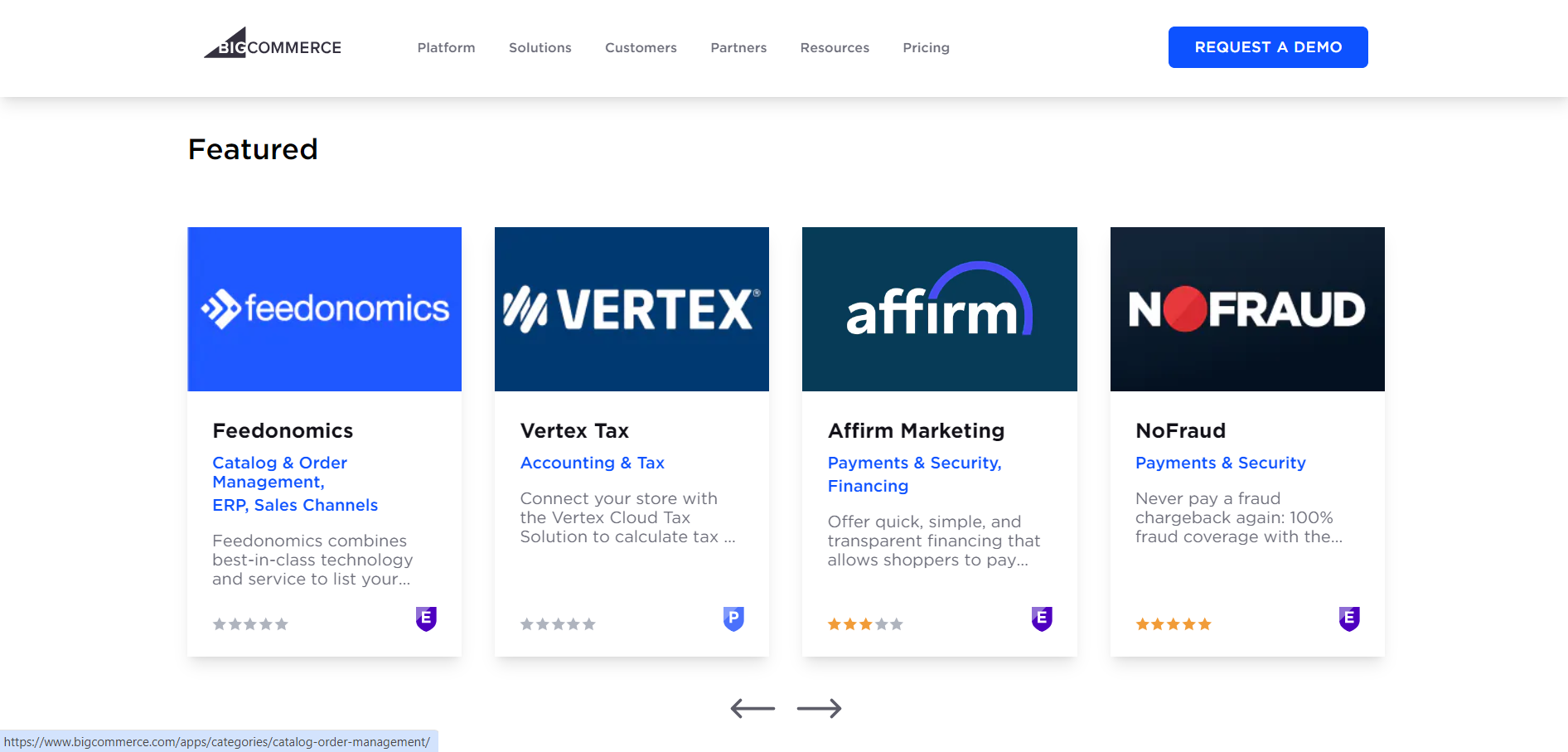
Marketing Features
Design FunctionalitiesRepresents how well each platform allows for creative design and customization of websites.Score Components:
- Template Variety (30%): Range and quality of design templates.
- Customization (30%): Flexibility and options for design alterations.
- User Interface (20%): Ease and intuitiveness of the design process.
- Responsiveness (10%): Adaptability to different devices and screen sizes.
- Innovation (10%): Unique design features and tools.
 7.9
7.9
 5.7
5.7
🏆
Overall Winner: BigCommerce
. BigCommerce stands out for its comprehensive marketing tools, especially in SEO, email marketing, and social media integration. SubHub, while strong in SEO and email marketing, lacks social media integration.

|

|
|
|---|---|---|
|
SEO Tools |
|
|
|
Email Marketing |
|
|
|
Blogging |
|
|
|
Social Media Integration |
|
|
|
Analytics and Reporting |
|
|
|
Ads and Promotions |
|
|
Customer Support
Customer supportEvaluates the quality and availability of support options.Score Components:
- Response time (40%): Speed of support responses.
- Support quality (30%): Effectiveness and helpfulness of the support.
- Availability (20%): Range of support channels (phone, chat, email).
- Resource richness (10%): Quality of self-help and educational materials.
 8.7
8.7
 6.3
6.3
🏆 Winner: BigCommerce
. In the comparison of BigCommerce vs SubHub, BigCommerce stands out with its comprehensive 24/7 customer support available through phone, email, and live chat. This ensures that users can get help whenever they need it, regardless of their location. BigCommerce also offers a robust knowledge base and active community forums, providing users with multiple avenues to find solutions and share experiences. For enterprise customers, BigCommerce provides express routing, priority support, and dedicated customer success management, ensuring a high level of personalized service.
SubHub, on the other hand, offers customer support primarily through email and a support portal, with an FAQ section for common questions. While this may be sufficient for smaller membership sites, it lacks the immediacy and comprehensive nature of BigCommerce’s support options. SubHub does not offer specialized support for enterprise customers, which may be a limitation for larger businesses looking for more robust support services.
Security
SecurityLooks at the platforms’ security measures and data protection.Score Components:
- Data protection (40%): Safeguards for user and customer data.
- SSL and encryption (30%): Implementation of secure connections.
- Compliance (20%): Adherence to industry security standards.
- Regular updates (10%): Frequency of security updates and patches.
 8.9
8.9
 4.0
4.0
🏆
Winner: BigCommerce
. BigCommerce takes security seriously, with a comprehensive approach that includes compliance with international regulations, data encryption, secure data centers, regular audits, and continuous monitoring. This ensures that businesses can operate their online stores with confidence, knowing that their data and their customers’ data are well protected.
SubHub, on the other hand, does not provide any information about its website security measures. While it does emphasize compliance with GDPR and CCPA regulations in its privacy policy, the lack of information about website security is a significant drawback. Therefore, BigCommerce is the clear winner in this comparison.
AI Capabilities
AI capabilitiesMeasures the effectiveness of AI-driven features and tools.Score Components:
- Automation efficiency (40%): Impact of AI on streamlining processes.
- Personalization (30%): AI-driven customization for users or customers.
- AI-Assisted design (20%): Role of AI in website design and functionality.
- Data analysis (10%): Use of AI in interpreting user data and analytics.
 7.3
7.3
 0
0

|

|
|
|---|---|---|
|
AI Builder |
|
|
|
AI Ecommerce features |
Personalized product recommendations, AI on-site search, and AI powered chatbots |
|
|
AI Content Generation |
AI-powered writing tools for creating product descriptions and SEO metadata |
|
|
Additional AI features |
AI-driven data analytics, personalized storefronts, and Maisie AI chatbot for sales and customer service |
|
🏆 Winner: BigCommerce
. BigCommerce, with a score of 7.3, integrates AI technology to enhance ecommerce operations, offering AI-powered writing features for product descriptions, personalized storefronts through product recommendations, and AI-driven data analytics for deeper business insights. Additionally, the Maisie AI chatbot assists with sales, customer service, and marketing list growth, providing a comprehensive suite of tools aimed at improving efficiency, customer engagement, and sales performance for merchants.
SubHub, with a score of 0, does not have any AI capabilities. This lack of AI features may limit the platform’s ability to provide personalized experiences and efficient operations.
User Management
User ManagementAssesses the platforms’ capabilities in managing user roles, permissions, and accessibility.Score Components:
- Role Customization (40%): Flexibility in creating and defining user roles and
permissions. - Ease of Management (30%): User interface and tools for managing users.
- Access Control (20%): Effectiveness of access control measures for different user
levels. - Scalability (10%): Ability to manage a growing number of users efficiently.
 8.9
8.9
 5.2
5.2
🏆 Winner: BigCommerce
. Both BigCommerce and SubHub offer multiple user accounts, but BigCommerce provides a more detailed and flexible user management system.
- BigCommerce allows an unlimited number of staff accounts with various roles and permissions.
- SubHub allows multiple user accounts, but the platform does not specify how many accounts are supported.
BigCommerce User Roles and Access Levels:
| Role | Description | Access Highlights |
|---|---|---|
| Sales Staff | Enables all Sales Staff permissions | Manage, edit, and add orders, finalize manual orders with manual payments, manage returns, capture funds, and refund orders, manage and edit customers, manage and edit product reviews, manage legacy coupons and promotions, use Image Manager. |
| Sales Manager | Enables all Sales Staff and Sales Manager permissions | Includes Sales Staff permissions, manage, create, edit, and delete products, manage product options and categories, export orders, manage customer store credit and export customers, manage blogs, brands, and various reports, edit inventory and manage channels. |
| Store Administrator | Enables all Sales Staff, Sales Manager, and System Admin permissions | Includes Sales Staff and Sales Manager permissions, manage users and form fields, manage settings, manage payments, shipping, and tax settings, import catalog entities and customers, access store design tools and Page Builder, manage customer groups, take store down for maintenance. |
| Store Owner | Includes all permissions and is the person financially responsible for the account | Full access to all permissions and features across the platform, exclusive access to account-related features and settings not available to other roles. |
| Custom | Use this option to create your own combination of permissions | Customize permissions based on specific needs, mix and match permissions from different roles to create a unique role with tailored access. |
SubHub User Roles and Access Levels:
| Role | Description | Access Highlights |
|---|---|---|
| Administrator | Full access to the platform except for Homepage and Course Editor. | Can manage all aspects of the platform, including content, store, and member management. |
| Content Management | Focuses on managing and organizing content within the platform. | Can access and manage content-related features but does not have access to Homepage or Course Editor. |
| Store (access only) | Specializes in handling the platform’s store features. | Limited to store management functions; no access to Homepage, Course Editor, or member management. |
| Member Manager (access only) | Oversees member accounts, roles, and subscriptions. | Can manage members and their subscriptions but cannot access Homepage, Course Editor, or store management. |
| *Origin Admin Email | The initial administrator with the highest level of access, including Homepage and Course Editor. | Exclusive access to Homepage and Course Editor, on top of what the Administrator role provides. |
Additional Features

|

|
|
|---|---|---|
|
SSL Certificate |
|
|
|
Custom Domain |
|
|
|
Free Custom Domain Included |
|
|
|
International Domains |
|
|
|
Mobile Responsive |
|
|
|
Page Speed |
|
|
|
Website Builder Mobile App |
|
|
|
Convert a Website To An App |
|
|
|
Website Analytics |
|
|
|
Multilingual Sites |
|
|
|
Multiple Users |
|
|
BigCommerce vs SubHub: User Feedback
User feedback on BigCommerce highlights a mix of experiences, with positive remarks on its ease of use, SEO configuration, and strong support team. However, significant criticisms include its lack of suitability for businesses with brick-and-mortar locations, due to issues with POS integration and sales tracking, as well as its inflexibility with customization and additional costs for necessary features. Additionally, concerns were raised about the platform’s steep learning curve for beginners, limitations in product variation and design options, and difficulties with order management. Despite these challenges, some users appreciate the platform’s ability to quickly launch and reliably host stores, alongside its potential for scalability and e-commerce growth.
User feedback on SubHub presents a mix of positive and negative experiences, emphasizing the platform’s feature-rich environment and customizable templates. Users appreciate the flexibility and the quality of customer service, highlighting the platform’s continual updates and support as key benefits. However, some users express dissatisfaction with aspects such as the platform’s interface, lack of community features, and service fees for ticket resale. Concerns were also raised about the custom design service and mobile-friendly solutions taking longer than expected.
The making of this blog
We followed a clear, step-by-step process to write and research this article.
BigCommerce vs SubHub: FAQ
Which platform is better for ecommerce, BigCommerce or SubHub?
Can I use SubHub for ecommerce?
Which platform offers better design and customization options?
Is SubHub easier to use than BigCommerce?
Which platform offers better support for membership-based sites?
How do BigCommerce and SubHub compare in terms of customer support?
Which platform is more secure?
Do BigCommerce and SubHub offer AI capabilities?
Can I manage multiple users on both platforms?
Which platform is recommended based on user feedback?










